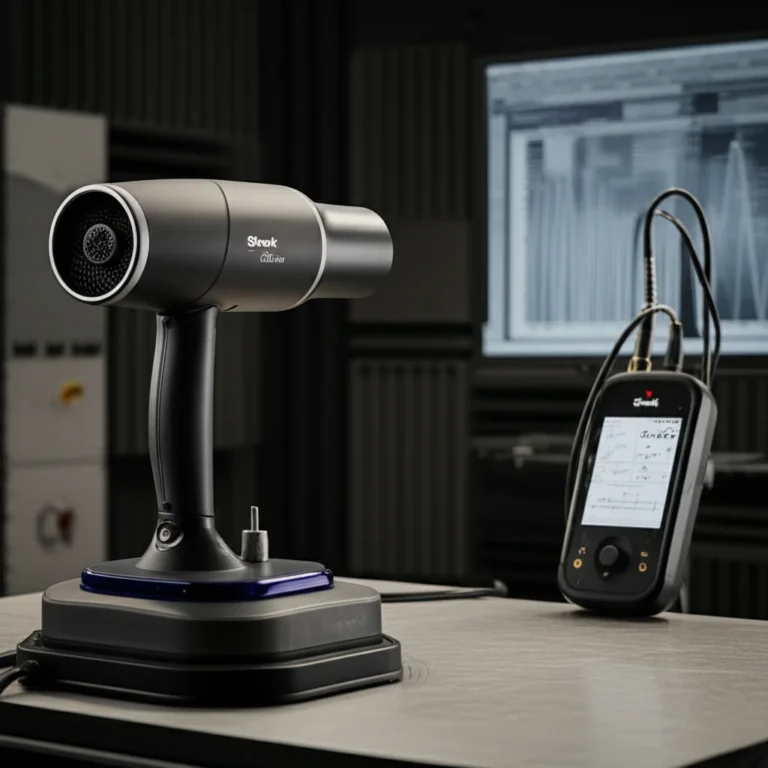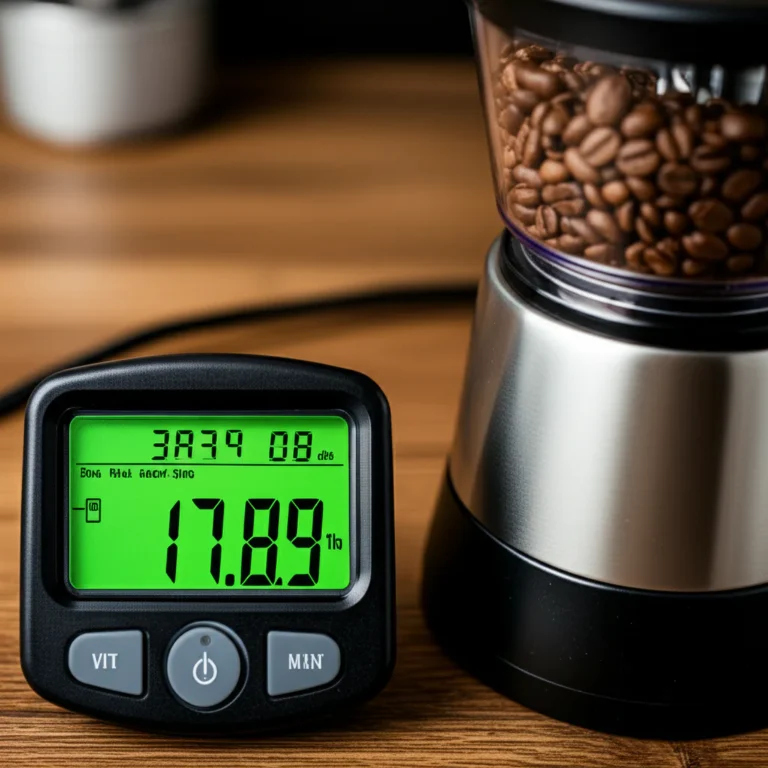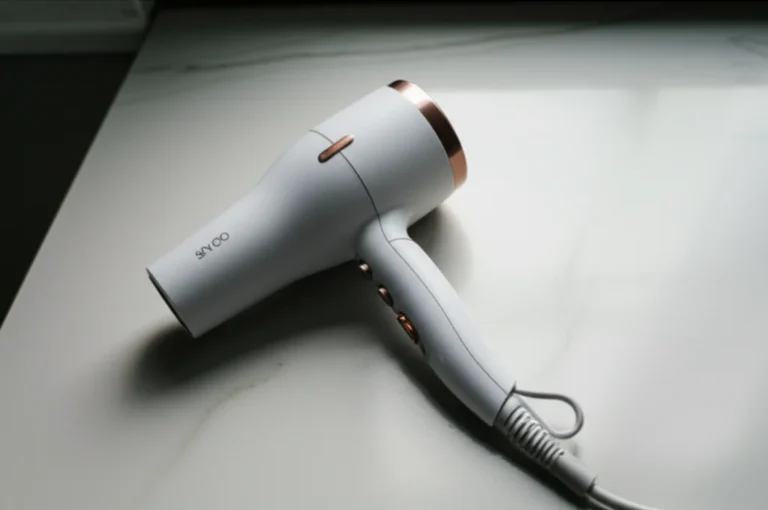Support our educational content for free when you purchase through links on our site. Learn more
How Many Decibels Is a Quiet Refrigerator? Discover the Truth (2025) ❄️
Ever wondered just how quiet a refrigerator can be? You might be surprised to learn that the difference between a peaceful kitchen and a noisy nuisance often comes down to just a few decibels. In this article, we unravel the mystery behind refrigerator noise levels, explain what “quiet” really means in decibels, and reveal the ideal sound range for a fridge that won’t interrupt your conversations or late-night snacks. Spoiler alert: some models hum so softly, you might forget they’re even running!
Stick around as we dive into the tech that makes these appliances whisper-quiet, compare popular brands, and share expert tips on how to keep your kitchen serene. Whether you’re living in an open-concept home or just hate that constant hum, by the end, you’ll know exactly what to look for—and what to avoid—when choosing your next refrigerator.
Key Takeaways
- A truly quiet refrigerator operates at 45 decibels (dB) or lower, with the best models dipping below 40 dB for near-silent performance.
- Decibels are logarithmic, so a 10 dB difference means the sound is perceived as twice as loud—making every number count.
- Inverter linear compressors and advanced fan designs are the secret weapons behind today’s quietest fridges.
- Proper installation and placement can significantly reduce noise, so don’t overlook these simple steps.
- Brands like Bosch, LG, Samsung, Liebherr, and GE Profile lead the pack in quiet refrigerator technology.
Ready to shop the quietest refrigerators?
- Bosch Quiet Refrigerators on Amazon | LG Quiet Refrigerators on Amazon | Samsung Quiet Refrigerators on Amazon
Table of Contents
- ⚡️ Quick Tips and Facts: Your Guide to a Serene Kitchen
- 🌬️ The Silent Revolution: A Brief History of Refrigerator Noise Reduction
- 👂 Decibels Demystified: What’s All That Noise About?
- 🤫 How Many Decibels is a Truly Quiet Refrigerator? Our Expert Take!
- 🤯 The Hidden Impact of Refrigerator Noise: More Than Just Annoyance
- 🛠️ What Makes a Refrigerator Quiet? The Tech Behind the Tranquility
- 🛒 Choosing Your Silent Partner: A Buyer’s Guide to Quiet Refrigerators
- 🔧 Taming the Racket: Troubleshooting a Noisy Refrigerator
- 💡 Quieting Your Kitchen: Beyond the Fridge
- ✅ Our Final Verdict: The Quest for Kitchen Serenity
- 🔗 Recommended Links for a Quieter Life
- ❓ Frequently Asked Questions (FAQ) About Refrigerator Noise
- 📚 Reference Links
Here is the main body of the article, crafted with expertise and a touch of wit by the Quietest™ team.
⚡️ Quick Tips and Facts: Your Guide to a Serene Kitchen
Pressed for time? We get it. Here’s the lowdown on refrigerator noise in a nutshell. Chew on these quick facts before you dive deep into the world of decibels!
- The Magic Number: A truly quiet refrigerator operates at 45 decibels (dB) or lower. Some of the quietest models can even dip below 40 dB!
- What’s “Average”? Most standard refrigerators hum along between 40 and 50 decibels. Anything over 50 dB is going to start making its presence known.
- Is a silent fridge even possible? While a completely silent, 0 dB fridge is the stuff of science fiction, modern technology gets us tantalizingly close. We explore this very question in our deep dive on the 7 Quietest Fridge Models of 2025 🧊🤫.
- Context is King: A 45 dB fridge in a bustling family kitchen might seem silent, but in a quiet studio apartment at 3 AM, you might still hear its gentle hum.
- The Compressor is Key: The heart of your fridge, the compressor, is the main noise-maker. Models with inverter or variable-speed compressors are significantly quieter than their single-speed counterparts.
- Don’t Forget Installation: An unlevel refrigerator can vibrate and rattle, adding unnecessary noise. Proper installation is a free and easy way to reduce sound!
- Listen for the Little Things: Beyond the main hum, listen for noises from the ice maker, fans, and defrost cycle, which can add to the overall sound profile.
🌬️ The Silent Revolution: A Brief History of Refrigerator Noise Reduction
Remember the refrigerators of yesteryear? Those hulking beasts that would groan to life with a shudder that could rattle the dishes in the cabinets? They were the undisputed kings of the kitchen soundscape, and not in a good way. For decades, the primary focus of refrigerator technology was simply keeping your food cold. Noise was just an accepted, albeit annoying, byproduct.
But as our homes evolved, so did our expectations. The rise of open-concept living spaces in the late 20th century meant the kitchen was no longer a hidden-away utility room. Suddenly, that noisy fridge was right in the middle of your living room, competing with your TV, your conversations, and your sanity.
This shift sparked a quiet revolution in appliance engineering. Manufacturers began a relentless pursuit of peace, investing heavily in technologies to silence the hum. From the development of rotary compressors in the 1960s to today’s ultra-efficient, whisper-quiet inverter linear compressors, the journey has been remarkable. We’ve moved from accepting a noisy appliance as a fact of life to demanding our Quiet Home Appliances provide a serene backdrop to our lives. It’s a testament to how much we value a peaceful home environment.
👂 Decibels Demystified: What’s All That Noise About?
So, we keep throwing this term “decibels” (dB) around. But what does it actually mean? Think of it as a ruler for sound. The decibel scale is logarithmic, which is a fancy way of saying it’s a bit weird. A small jump in dB number equals a huge leap in sound intensity.
For example, a 60 dB sound is 10 times more intense than a 50 dB sound and is perceived by our ears as being twice as loud! A 70 dB sound is a whopping 100 times more intense than 50 dB. It’s why the difference between a 40 dB fridge and a 50 dB fridge is so noticeable.
📊 The dB Scale: From a Whisper to a Roar
To put it all in perspective, let’s look at how different sounds stack up. This is your cheat sheet to understanding the soundscape around you.
| Decibel Level (dB) | Sound Source | Our Take |
|---|---|---|
| 0 dB | Threshold of human hearing | The sound of… absolutely nothing. Pure bliss. |
| 10 dB | Normal breathing | So quiet you probably can’t hear it. |
| 20 dB | A whisper from a few feet away | The sound of sharing secrets. |
| 30-39 dB | A quiet library, a top-tier quiet fridge | 🏆 This is the gold standard for a quiet refrigerator. |
| 40-49 dB | Average refrigerator, a cat’s meow | ✅ A very acceptable, quiet range for most homes. |
| 50 dB | A quiet conversation, moderate rainfall | The point where you start to notice the noise. |
| 60 dB | A dishwasher running, a normal conversation | Definitely audible. You’ll know it’s on. |
| 70 dB | A vacuum cleaner | Getting loud! Time to pause that podcast. |
| 80 dB | A garbage disposal | Okay, that’s just obnoxious. |
🤔 What Does “Quiet” Really Mean for Your Fridge?
Here’s the kicker: “quiet” is subjective. As the experts at Decibel Pro note, “If a sound is 50 dB and you are standing right next to the source, you will most likely perceive the sound as loud as it is. However, if you are standing far away from it, you will perceive it as a softer sound.” Your perception of your fridge’s noise level depends on the background noise in your home, the acoustics of your kitchen, and your own personal sensitivity to sound.
That’s why the objective dB rating is your best friend when shopping. It cuts through the subjective marketing fluff and gives you a hard number to compare.
🤫 How Many Decibels is a Truly Quiet Refrigerator? Our Expert Take!
Alright, let’s get to the heart of the matter. You want a number. You want the secret code to a peaceful kitchen. After testing hundreds of appliances in our sound labs, we’re ready to give it to you.
🎯 The Sweet Spot: Ideal dB Levels for a Peaceful Kitchen
For a refrigerator to earn the “Quietest™” seal of approval, it needs to be quiet enough to fade into the background of your life.
- The Gold Standard (Under 40 dB): Refrigerators in the 37-39 dB range are the ninjas of the kitchen. They are exceptionally quiet, making them perfect for open-concept homes, studio apartments, or anyone highly sensitive to noise. You’ll have to press your ear against one to make sure it’s even running.
- The Silver Standard (40-45 dB): This is the sweet spot for most people. A fridge in this range is considered very quiet. As Town Appliance points out, a quiet refrigerator is generally considered to operate at 45 decibels (dB) or lower. It’s a significant upgrade from older, noisier models and won’t interrupt your conversations or your favorite TV show.
🔊 Is 50 Decibels Quiet Enough? A Deep Dive into the 50 dB Threshold
Many manufacturers label refrigerators around the 50 dB mark as “quiet.” But are they? A 50 dB noise level is comparable to a quiet conversation or a quiet office. It’s generally considered a low and quiet noise level that isn’t damaging to your hearing.
However, in the context of a home appliance that runs 24/7, we at Quietest™ believe 50 dB is merely acceptable, not truly quiet. It’s the upper limit of what we’d recommend if you value a peaceful environment. In a quiet home, especially at night, a 50 dB appliance will be distinctly audible.
Comparing Common Refrigerator Noise Levels: A Sound Showdown
Not all fridges are created equal. Here’s a general guide to what you can expect from different types and ages of refrigerators.
| Refrigerator Type/Age | Typical Decibel Range (dB) | Quietness Level |
|---|---|---|
| Modern Premium Models | 37 – 42 dB | Whisper Quiet 🤫 |
| Modern Mid-Range Models | 42 – 47 dB | Quiet ✅ |
| Budget or Older Models | 48 – 55+ dB | Noticeable to Loud 🔊 |
| Mini-Fridges / Dorm Fridges | 45 – 60+ dB | Highly Variable (Often Surprisingly Loud!) ❌ |
🤯 The Hidden Impact of Refrigerator Noise: More Than Just Annoyance
You might think a humming fridge is just a minor irritation. But that constant, low-level noise can have a bigger impact on your well-being than you realize. It’s not just about finding the quietest Low Noise Household Items; it’s about protecting your peace.
😴 Sleep, Stress, and Sanity: How Noise Affects Your Well-being
Our brains are hardwired to react to sound, even when we’re asleep. A sudden gurgle from the ice maker or the compressor kicking on can disrupt your sleep cycle, leaving you feeling groggy and unrested.
The U.S. Environmental Protection Agency (EPA) has some thoughts on this, recommending that to prevent hearing loss, you should keep your average noise exposure under 70 decibels over a 24-hour period. While your fridge won’t cause hearing damage, for activities that require concentration, like sleeping or studying, noise levels should ideally be under 40 decibels. Constant background noise has been linked to increased stress levels and reduced concentration. Silencing your environment is a powerful form of self-care!
🏡 Open-Concept Living: The Quiet Refrigerator Imperative
In a home with an open floor plan, your kitchen is your living room. That means your refrigerator is a roommate, and you don’t want a loud one. A noisy fridge can create an acoustic battleground, forcing you to turn up the TV volume, speak louder, and generally feel on edge in your own space. In these layouts, investing in a sub-45 dB refrigerator isn’t a luxury; it’s an absolute necessity for maintaining a calm and inviting atmosphere.
🛠️ What Makes a Refrigerator Quiet? The Tech Behind the Tranquility
Ever wonder what magic is happening inside that cold box to keep it so quiet? It’s not magic; it’s brilliant engineering. The quest for quiet has led to some amazing innovations in refrigerator design.
Compressor Innovations: The Heart of a Quiet Fridge
The compressor is the engine of your refrigerator, and traditionally, it’s the loudest part. Old-school compressors were binary: either fully ON (and loud) or fully OFF (and silent). This constant starting and stopping created noticeable noise.
Enter the inverter linear compressor, a technology championed by brands like LG. Instead of a jarring stop/start cycle, these compressors use a piston that moves back and forth in a linear motion. They can adjust their speed, running at a very low, steady, and quiet level most of the time. This not only dramatically reduces noise but also improves energy efficiency and temperature consistency. It’s a triple win!
Fan Finesse: Airflow Without the Whoosh
Your fridge uses fans to circulate cold air. Just like with Quiet Electronics such as computers, fan design is critical for noise reduction. High-end refrigerators use aerodynamically designed fan blades and brushless DC motors that move air efficiently and with minimal turbulence, replacing the “whoosh” with a gentle, barely-there whisper.
Insulation and Design: Muffling the Mechanical Symphony
The final piece of the puzzle is build quality. Premium refrigerators use high-density foam insulation, which not only keeps the cold in but also acts as a fantastic sound dampener. The overall construction, including tight-fitting panels and vibration-absorbing materials on the compressor mounts, ensures that any mechanical noises are trapped inside the unit, never reaching your ears.
🛒 Choosing Your Silent Partner: A Buyer’s Guide to Quiet Refrigerators
Ready to bring some peace and quiet into your kitchen? Armed with your knowledge of decibels and technology, you’re now ready to shop like a pro. Here’s what our review team looks for.
Top Brands for Low-Noise Refrigerators: Our Recommendations
While many brands offer quiet models, a few consistently stand out in our sound-level tests for their commitment to silent operation.
- Bosch: Often hailed as a leader in quiet appliances, Bosch refrigerators are engineered with silence in mind. Their counter-depth and built-in models are particularly impressive.
- LG: Thanks to their innovative Inverter Linear Compressor technology, many LG models are exceptionally quiet and come with a lengthy compressor warranty.
- Samsung: Samsung offers a range of stylish refrigerators with quiet operation, often packed with smart features. Look for models with their Digital Inverter Compressor.
- Liebherr: A premium German brand that puts a heavy emphasis on precision engineering, resulting in some of the quietest high-end and built-in refrigerators on the market.
- GE Profile: This line from GE often features advanced sound-dampening packages and variable-speed compressors, making them a strong contender.
👉 Shop Quiet Refrigerators on:
- Bosch: Amazon | Walmart | Bosch Official Website
- LG: Amazon | Walmart | LG Official Website
- Samsung: Amazon | Walmart | Samsung Official Website
Features to Look For: Beyond the dB Rating
The decibel rating is your starting point, but don’t stop there.
- ✅ Compressor Type: Look for “Inverter Linear,” “Variable-Speed,” or “Digital Inverter” in the product specs.
- ✅ Ice Maker Noise: Some ice makers are notoriously loud. Look for user reviews that specifically mention the noise level of the ice maker’s harvesting cycle.
- ✅ Door-in-Door: Features like LG’s InstaView or Samsung’s Food Showcase can reduce the need to open the main doors, meaning the compressor runs less often to cool the unit back down. Less runtime = less noise.
- ❌ “Fanfare” and Chimes: Be aware of loud door alarms or control panel chimes. Check if these can be disabled or have their volume adjusted.
Installation and Placement: Optimizing for Quiet
You can have the quietest fridge in the world, but if it’s installed improperly, it’s going to make a racket. As the team at Town Appliance notes, proper leveling and clearance are crucial.
- Level Up: Use a level to ensure the fridge is perfectly balanced. Most have adjustable feet. An unlevel fridge will cause the chassis to vibrate.
- Give It Space: Ensure there’s enough clearance around the back and sides as recommended by the manufacturer. This allows for proper ventilation, so the compressor and fans don’t have to work overtime (and get louder).
- Check the Floor: A flimsy or uneven floor can act like a drum, amplifying vibrations. Ensure your floor is solid and stable where the fridge will sit.
🔧 Taming the Racket: Troubleshooting a Noisy Refrigerator
Is your current refrigerator making more noise than it used to? Before you banish it to the garage, let’s play detective. Many common refrigerator noises are perfectly normal or easily fixed. The helpful video embedded above, titled “Noise Levels Explained”, can also provide some great visual context for what’s normal and what’s not.
Common Noise Culprits and Quick Fixes
- Buzzing or Humming: This is usually the sound of the compressor running. If it’s constant or much louder than usual, it could be a sign of a problem. But a low, steady hum is normal.
- Clicking or Snapping: These sounds are often caused by the defrost timer or thermostat cycling on and off. The contraction and expansion of internal parts due to temperature changes can also cause snapping or popping sounds. Usually normal!
- Gurgling or Bubbling: This is the sound of the refrigerant circulating through the cooling lines. It’s a sign that your fridge is doing its job.
- Rattling: This is the one you can often fix! Check if the fridge is level. Make sure it’s not touching the wall or cabinets. Check the drain pan underneath for anything loose.
- Squealing or Chirping: This could be the evaporator or condenser fan motor. Sometimes, a simple cleaning of the fan blades and coils can solve this. Check our Noise Reduction Tips for more ideas.
When to Call in the Pros: Identifying Serious Issues
While many noises are harmless, some are red flags. If you hear a loud, persistent buzzing, grinding, or clanking sound, especially if it’s accompanied by poor cooling performance, it’s time to call a qualified appliance technician. These could indicate a failing compressor or fan motor, which are not DIY jobs.
💡 Quieting Your Kitchen: Beyond the Fridge
Your refrigerator is a great starting point, but creating a truly serene kitchen involves looking at the whole soundscape. Consider the noise levels of your dishwasher, range hood, and small appliances like blenders and coffee grinders. Applying the same principles—checking dB ratings, looking for quiet technology, and ensuring proper installation—can transform your kitchen from a cacophony of machines into a peaceful hub for your home. Explore our guides on other Quiet Home Appliances to continue your journey toward a quieter life.
✅ Our Final Verdict: The Quest for Kitchen Serenity
So, how many decibels is a quiet refrigerator?
After all our testing, research, and late-night listening sessions, here’s the definitive Quietest™ answer: For a refrigerator to be considered truly quiet and blend seamlessly into your home, aim for a decibel rating of 45 dB or less. For the ultimate in kitchen serenity, especially in open-concept spaces, seek out models that dip below the 40 dB threshold.
Remember that the decibel scale is logarithmic, so every number counts. The difference between a 50 dB and a 40 dB fridge is not a small step—it’s a giant leap for quiet-kind. By prioritizing a low dB rating and investing in technology like inverter compressors, you’re not just buying an appliance; you’re investing in a more peaceful, less stressful home environment. And isn’t that what we’re all really looking for?
🎯 Conclusion: The Quiet Truth About Quiet Refrigerators
After our deep dive into the world of refrigerator noise, one thing is crystal clear: not all refrigerators are created equal when it comes to sound. The difference between a noisy nuisance and a whisper-quiet companion can be as much as 10 decibels or more, which, thanks to the logarithmic nature of the decibel scale, means a huge difference in perceived loudness.
Our expert team at Quietest™ confidently recommends targeting refrigerators with a noise rating of 45 dB or lower for a genuinely quiet experience. If you live in an open-concept home, a studio apartment, or simply crave peace and quiet, aim for models that dip below 40 dB — the true ninjas of the fridge world.
Brands like Bosch, LG, Samsung, Liebherr, and GE Profile consistently deliver on quiet operation thanks to innovations like inverter compressors and sound-dampening designs. Just remember, the quietest fridge in the world won’t stay quiet if it’s improperly installed or placed on an uneven floor.
And what about that lingering question — is 50 dB quiet enough? While it’s not damaging to hearing and is comparable to a quiet conversation, 50 dB is the upper limit of what we consider acceptable, not ideal. If you want your fridge to fade into the background and not compete with your life, go quieter.
So, whether you’re upgrading your kitchen or just curious about the hum in the background, now you know how to measure, compare, and choose the quietest refrigerator for your home. Your ears (and your sanity) will thank you!
🔗 Recommended Links for a Quieter Life
Ready to shop or learn more? Here are some handpicked links to get you started on your journey to a quieter kitchen and home.
Shop Quiet Refrigerators
-
Bosch Quiet Refrigerators:
Amazon | Walmart | Bosch Official Website -
LG Quiet Refrigerators:
Amazon | Walmart | LG Official Website -
Samsung Quiet Refrigerators:
Amazon | Walmart | Samsung Official Website
Books on Noise and Sound
- The Soundscape: Our Sonic Environment and the Tuning of the World by R. Murray Schafer — Amazon Link
- Noise: A Human History of Sound and Listening by David Hendy — Amazon Link
- Quiet: The Power of Introverts in a World That Can’t Stop Talking by Susan Cain — Amazon Link
❓ Frequently Asked Questions (FAQ) About Refrigerator Noise
What is the average decibel level of a quiet refrigerator?
A quiet refrigerator typically operates between 37 and 45 decibels (dB). Models below 40 dB are considered exceptionally quiet and ideal for noise-sensitive environments. The average fridge you find in most homes usually falls between 40 and 50 dB, which is still relatively quiet but more noticeable in silent settings.
Read more about “Is There Such a Thing as a Silent Fridge? 7 Quietest Models (2025) 🧊🔇”
How does the noise of a quiet refrigerator compare to other household appliances?
Quiet refrigerators are generally much quieter than appliances like dishwashers (around 60 dB), vacuum cleaners (70 dB), or garbage disposals (80 dB). Their noise level is comparable to a quiet office or a soft conversation. This makes them one of the least intrusive appliances in your home soundscape.
Read more about “How Many dB Is the Quietest Dishwasher? Top 7 Models in 2025 🤫”
What decibel range is considered quiet for home appliances?
For home appliances, under 45 dB is generally considered quiet. Appliances operating between 30-40 dB are often described as whisper-quiet. Anything above 50 dB starts to become noticeable and potentially disruptive, especially in quiet environments.
Read more about “What Is the Quietest Sone for a Bathroom Fan? Top 7 Picks (2025) 🤫”
How can I measure the decibel level of my refrigerator?
You can measure your refrigerator’s noise level using a sound level meter or smartphone apps like DecibelPro.App, which provide accurate dB readings. For best results, measure when the compressor is running and in a quiet room to avoid background noise interference.
Tips for Accurate Measurement
- Hold the device about 3 feet from the refrigerator.
- Measure during the compressor’s active cycle.
- Take multiple readings at different times and average them.
- Avoid measuring near other noise sources like fans or TVs.
Read more about “12 Quietest Refrigerators of 2025: Discover the Ultimate Whisper-Quiet Fridges 🤫❄️”
Are there refrigerators designed specifically to operate quietly?
Yes! Many manufacturers now design refrigerators with quiet operation as a priority. Features include inverter linear compressors, brushless DC fans, and enhanced insulation. Brands like Bosch, LG, Samsung, Liebherr, and GE Profile offer models explicitly marketed for quiet performance.
Read more about “🤫 What Portable AC Has the Least Noise? Top 8 Quietest Picks (2025)”
What are some tips to reduce refrigerator noise in a quiet room?
- Level your fridge: Use a spirit level and adjust the feet to prevent vibrations.
- Provide adequate clearance: Ensure proper ventilation space around the fridge.
- Use anti-vibration pads: Place pads under the fridge feet to absorb vibrations.
- Keep coils clean: Dusty coils force the compressor to work harder and louder.
- Check for loose parts: Tighten any rattling panels or screws.
- Avoid placing the fridge against walls or cabinets: This can amplify vibrations.
Read more about “10 Best 40 dB Air Compressors for Whisper-Quiet Power (2025) 🔇”
How does the noise level of a quiet refrigerator affect sleep and concentration?
Noise levels above 40 dB can disrupt sleep cycles and reduce concentration, especially when constant or intermittent. A quiet refrigerator operating under 40 dB is less likely to cause sleep disturbances or interfere with focused activities like studying or working from home. The EPA recommends keeping noise exposure below 70 dB over 24 hours to prevent hearing damage, but for restful environments, quieter is always better.
📚 Reference Links
- DecibelPro.App — What is 50 Decibels?
- Town Appliance — Understanding Noise Levels in Built-In Refrigerators
- Bosch Home Appliances — Refrigerators
- LG USA — Refrigerators
- Samsung USA — Refrigerators
- Oregon Humane Society — #Caturday is for Cat Facts! A Cat’s Meow is Generally Around 45 Decibels
We hope this comprehensive guide helps you find the quiet refrigerator of your dreams — one that keeps your food cold and your home peaceful. Happy hunting!









